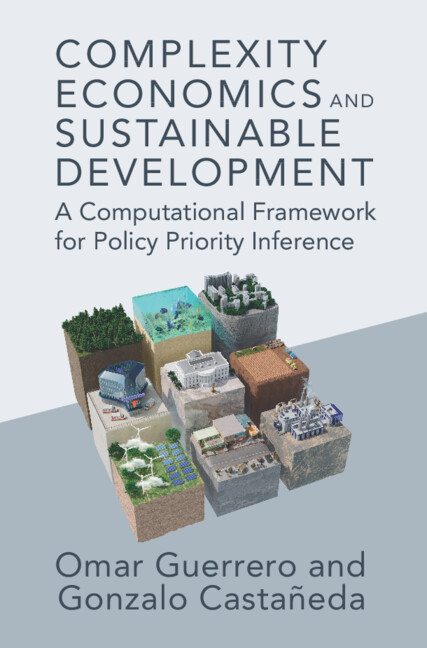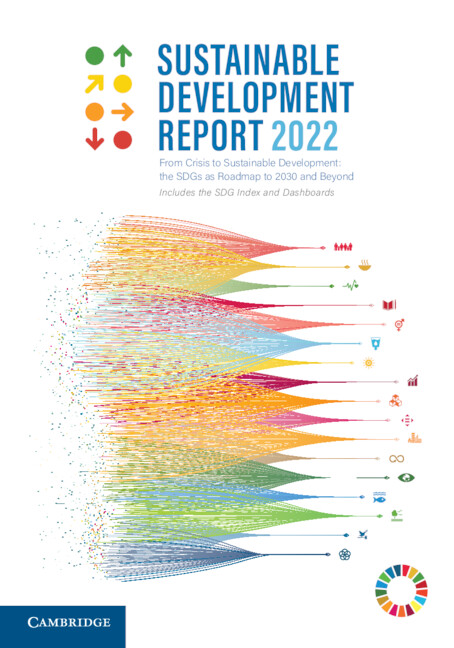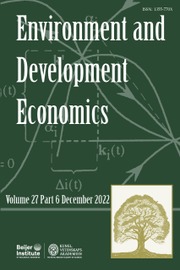Complexity Economics and Sustainable Development
The Sustainable Development Goals are global objectives set by the UN. They cover fundamental issues in development such as poverty, education, economic growth, and climate. Despite growing data across policy dimensions, popular statistical approaches offer limited solutions as these datasets are not big or detailed enough to meet their technical requirements. Complexity Economics and Sustainable Development provides a novel framework to handle these challenging features, suggesting that complexity science, agent-based modelling, and computational social science can overcome these limitations. Building on interdisciplinary socioeconomic theory, it provides a new framework to quantify the link between public expenditure and development while accounting for complex interdependencies and public governance. Accompanied by comprehensive data of worldwide development indicators and open-source code, it provides a detailed construction of the analytic toolkit, familiarising readers with a diverse set of empirical applications and drawing policy implications that are insightful to a diverse readership.
- Introduces the reader to the field of computational social science
- Provides the only existing demonstration of full potential of computational social science, from theory to data analysis, to policy prescriptions
- Familiarises the reader with a diverse landscape of analytic frameworks used in sustainable development
- Provides a meticulous guide through the technical details of a novel computational framework and shows the reader how to deploy it for numerous empirical applications
Reviews & endorsements
'The book by Omar Guerrero and Gonzalo Castañeda is a path-breaking contribution that, through a careful validation procedure of the complexity applied to sustainable development, demonstrates the logical and empirical superiority of the complex economy over the mainstream method, tight in the straitjacket of equilibrium. Furthermore, it offers convincing evidence of the need for economic policy intervention in sustainable development.' Mauro Gallegati, Università Politecnica delle Marche, Ancona, Italy
'The opportunities afforded by agent-based modelling for informing the development, appraisal, and evaluation of public policies at global and national scales have becoming increasingly evident over the last decade. But often research in this area has been small-scale, not well connected with policymakers, and methodologically unsophisticated. This book is different. It shows in detail the value of modelling using a generative causation approach, develops a powerful modelling framework, and applies it to a range of important case studies to evaluate the effectiveness of allocating budgets to achieve development and sustainability goals, both cross-nationally and at the level of individual countries. It is an excellent example of what policy modelling can achieve.' Nigel Gilbert, Professor of Sociology, Centre for Research in Social Simulation, University of Surrey, UK
'This important book makes excellent contributions on various levels. It introduces readers to sustainable development from a complexity perspective, and provides a masterclass on agent-based modelling and computational economics. Supported by a wealth of empirical data and case studies, the authors address numerous highly relevant topics in sustainability. The book is rich with original insights and policy recommendations. A must-read!' Dietmar Maringer, Professor of Computational Economics and Finance at the University of Basel, Switzerland
Product details
January 2024Adobe eBook Reader
9781009036191
0 pages
This ISBN is for an eBook version which is distributed on our behalf by a third party.
Table of Contents
- Part I. A Complexity Approach to Sustainable Development:
- 1. Introduction
- 2. Policy prioritisation, complexity, and agent computing
- 3. Relevant data and empirical challenges
- 4. A computational model
- 5. Calibration and validation
- Part II. A Global View of Sustainable Development:
- 6. The feasibility of the sustainable development goals
- 7. Government spending and structural bottlenecks
- 8. Public governance and sustainable development
- 9. The impact of international aid
- Part III. A Focalised View of Sustainable Development:
- 10. Subnational development and fiscal federalism
- 11. Accelerators and systemic bottlenecks
- 12. Deprivation, income shocks, and remittances
- 13. Lessons and reflections.





